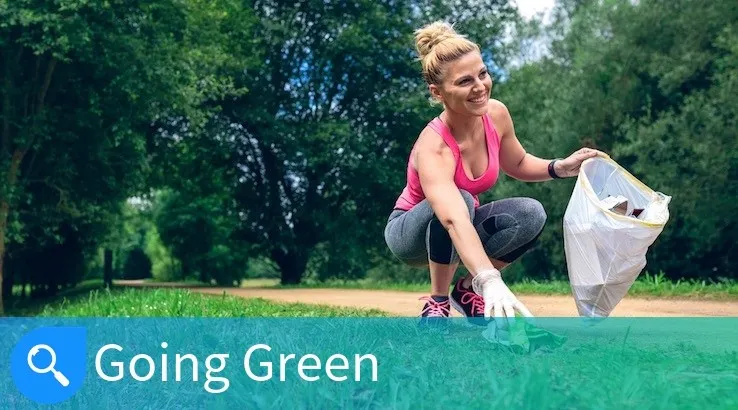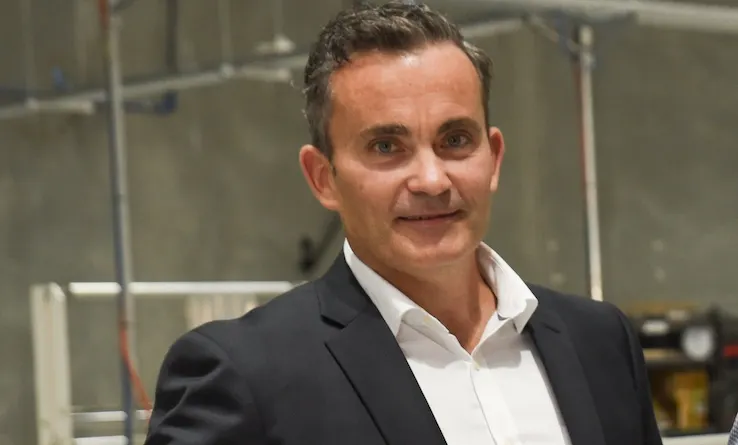Going Green: BioBag

The disposable bag company that offers an alternative to plastic.
Single-use plastic bags may be gone from major supermarkets, but there are still plenty out there. Whether you get them at other shops or use them as bin-liners, there's a good chance that they are adding to the world's plastic crisis. In fact, many bags marketed as "degradable" still break down into microplastics, which causes a whole lot of other problems for animals and the planet.
So what can we do about it? BioBag is one company with a solution, offering an alternative to plastic bags that can actually be composted. We caught up with BioBag director Scott Morton to learn more.

BioBag director Scott Morton. Image: Catherine Leo/Supplied
What does your company do and how is it green?
A BioBag is an earth-friendly plastic alternative that's much better for the environment than plastic because it returns to the earth as harmless organic matter, instead of breaking down into harmful microplastics.
As a company, we [also] separate all of our waste, including organics. It is very important for us to practice what we preach and this includes collecting organic waste as a separate stream.
What inspires you and your business to be green?
Our customers. BioBag has an amazing group of customers who are very supportive of what we do. We find this very inspiring and they encourage us to keep improving.
One of our customers, Karen Murphy, takes her BioBags to the shops to buy bread and fresh produce. Then she reuses the bag to collect food scraps and puts it into her green bin.
Hockeyroos goalkeeper Rachael Lynch loves our plastic alternatives so much she's taken our resealable BioBags on the Pro League tour to London and Germany for the team to use as ice packs after training and games.
These are both really good examples of small steps that can make big differences.
Why is being green personally important to you?
There is no denying climate change and we feel compelled to do our bit.
When 16-year-old Greta Thunberg addressed the UK Parliament in April she communicated the need to fight climate change now. There is no time left to talk, as we are set to lock in emissions for a 2°C temperature rise over the next five years.
Recycling food waste into compost is an opportunity to cut emissions and return much needed carbon to the soil.
Diverting food waste from landfill globally would have the same impact in terms of CO2 emissions reduction as taking all cars in the EU off the road. Zero Waste Scotland calculated that the carbon footprint of food waste collected from Scottish households was nearly three times that of plastic waste collected from people's homes. Using a BioBag helps divert both plastic and food waste from landfill.
Could you describe one small step people could take towards being greener?
Separate organics. Even small amounts of organics are such a valuable resource that there is no excuse for food waste ending up in landfill.
BioBag's Max Air ventilated kitchen compost caddy lined with a compostable BioBag is [a leading option] for pre-sorting food waste. The caddy and liners are breathable to prevent odours and the lid can stand open making it convenient to dispose of food scraps. Ventilation on all six sides maximises airflow to reduce moisture and odours.
When you use a ventilated compost caddy, it reduces methane emissions by promoting aerobic decomposition. This also means the food waste loses about 20 percent of its weight after 4 days.
What is one resource that you think people should read/watch/consume to understand more about sustainability and going green?
Our blog. We are big believers in incremental improvement so our blog has lots of useful information.
Going Green is a series that sheds light on companies, organisations and initiatives that have a focus on sustainability and ethics. We ask a representative from each company the same five questions so you can get a snapshot of the work they are doing to help protect the planet.
Want more info and tips for making greener choices? Check out the Finder Green homepage.
Image credits: Getty Images, Catherine Leo (supplied)